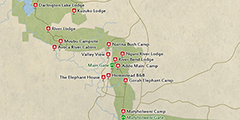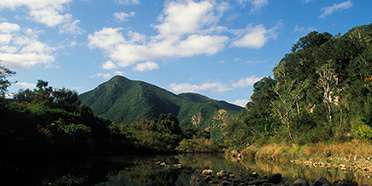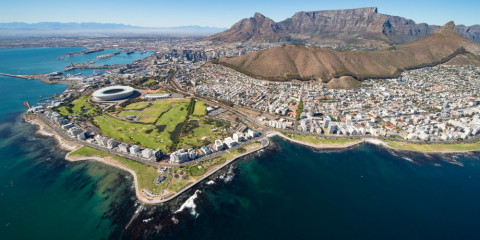Addo Elephant NP has recently been expanded and is now the third largest national park in the country. It is one of the best places in South Africa to see large herds of elephant. The elephants are incredibly relaxed, and the numerous waterholes offer very good opportunities to observe their social behavior. The other Big Five species are also present, but not as regularly seen.
-
Best Time To Go
- January to December (All year)
-
High Season
- October to March (The park gets crowded)
-
Size
- 1,800km² / 695mi²
-
Altitude
-
0-901m /0-2,956ft
 View Photos
View Photos
 View Photos
+24
Photos
View Photos
+24
Photos
 Open Map
Open Map
Pros & Cons
- Excellent elephant viewing
- Very accessible and easily combined with the popular Garden Route
- Good facilities and roads
- A variety of lodges and rest camps for all budgets
- Malaria-free
- Horse rides available for beginners and experienced riders
- The small park gets very busy in high season and school holidays
- Views of bordering farms diminishes wilderness appeal
Wildlife
Addo is a sanctuary for more than 700 elephants, which are the main attraction of the park. It is home to all of the Big Five including the elusive black rhino and over 400 Cape buffalo. Burchell’s zebra, red hartebeest, greater kudu and yellow mongoose are spotted regularly. Algoa Bay here has produced sightings of both great white sharks and southern right whales.
More about Addo Elephant Park’s wildlifeScenery
Addo encompasses five distinct vegetation areas: Albany thicket (dense woodland), fynbos (fine-leaved plants), forest, Nama Karoo (dry shrubland) and Indian Ocean coastal belt. The characteristic vegetation of the main area open to tourists is Albany thicket, which is dominated by spekboom (literally ‘bacon tree’), a low-growing succulent shrub that forms the main food for the elephants.
Weather & Climate
Unlike in most other parks elsewhere in South Africa, the summer rainfall (October to April) at Addo doesn’t entirely cease in the winter months (May to September). It just diminishes, along with the heat. In fact, the midwinter nighttime temperatures can sometimes drop to freezing.
More about the weather and climateBest Time To Visit
To avoid the crowds and increased prices of the park’s high season, not to mention the heavier rainfall, visit during the drier months (May to September). You will need to bring your warmest clothes to deal with the low temperatures on early-morning game drives. But at least the elephants and other animals will be easy to find, being needy of the local waterholes. In the wetter months, the wildlife disperses among the park’s thick vegetation.
More about the best time to visit



